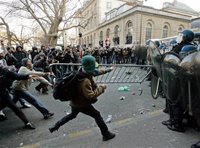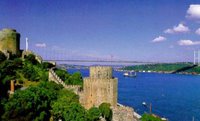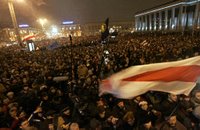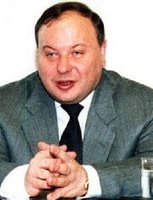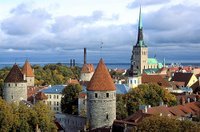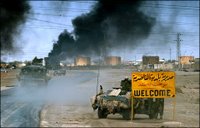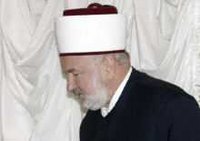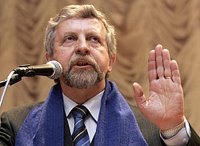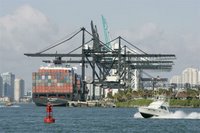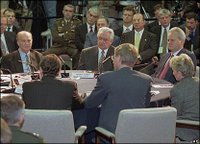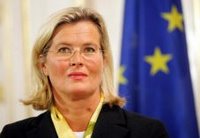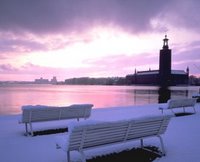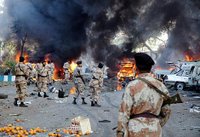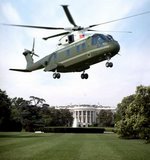
Six months from now - on September 17th - the voters will decide whether there will be a change of government in Sweden and not.
Since whenever I travel abroad I get questions on what might happen I might just as well write a tentative answer here.
Six month on the day before polling day is a good time to assess how things stand.
Since the last election in 2002 the most noticeable change oin the political scene is a significant improvement in the cooperation between the three parties of the centre-right in the present opposition alliance.
In fact, they have never ever been as united as they are today. And this been made possible by political changes within these parties, most notably within the Centre Party, which previously was the least enthusiastic about going far in pre-electoral commitments.
If there is now a more united centre-right, we have seen the opposite development on the centre-left and the left.
The present Social Democratic government is a minority one dependent on the support in the Riksdag of the Left Party - former Communists - as well as the Green Party. But relations between them are far from close, and it's increasingly uncertain whether they would have any possibility of actually sticking together after the election.
There is thus one certain government alternative - the present opposition - and one highly uncertain - indeed faltering - one.
If we look at the opinion polls, an attempt in Aftonbladet today to merge the different opinion polls produced an average of 50,1 % for the opposition alliance and 46,5 % for the red-green mess that is there at the moment.
That's a significant lead - but not enough to create too much certainty concerning the outcome of the election.
The Social Democrats are likely to lose significantly, and the Moderates to gain significantly. In the case of the Moderates it is from its catastrophic and out-of-trend result four years ago.
At present, the Moderate leader Fredrik Reinfeldt is significantly more thrusted by public opinion than is the Prime Minister Göran Persson.
If one where to look only at the economic data it looks not too bad for the government.
Growth is good, and although the very significant unemployment figures are a real problem, it might well be that we will see employment increased somewhat. It will not be enough to address the problems of substance - but perhaps enough to make a political difference.
The Social Democrats are bound to do their utmost to present the country as a case of success in a Europe of more mixed performance.
But if one looks at other factors of relevance, it is difficult not to be struck by the series of semi-scandals now surrounding the ruling Social Democratic caste. Some I have highlighted here earlier - most I have spared my readers from.
If one adds them up I believe that the average voter is beginning to get the impression that this caste is more interested in its perks and priviligies, and increasingly don't even shy away from lying and cheating in order to increase and preserve them.
I have to say that this picture is beginning to resemble reality as well. It's a ruling caste that's been there for too long - for themselves as well as for the country.
As for issues of substance, the debate six months before the election is remarkably timid and uncertain.
The leader of the Liberal Party has - this so far is the exception to the rule - produces a good book on the challenge and opportunity of globalisation on Sweden, but otherwise the debate tends towards the technical, the immediate and the timid. The famous "vision thing" is notably absent from the scene.
With good growth due also to very loose fiscal and monetary policies, there is a disturbing tendency to offer the voters the one expensive package of promises after the other, while downplaying the structural reform pressures that are rapidly building up.
The risk is that this competition in expensive promises will increase even further during the remaining months. Eventually, the bills will have to be paid.
The outcome of the election will be decided in the few weeks of campaigning after the summer. In recent elections, approximately a third of the electorate finally made up its mind during the campaign, and a significant portion even during the very last days.
All in all, it seems likely that Sweden is heading for a new government in October.
The opposition alliance is ahead, and it has more energy and more coherence. And it has none of the scandals.
The election is really theirs to lose.
 Suddenly there is an outburst of violence in Southeastern Turkey.
Suddenly there is an outburst of violence in Southeastern Turkey. 
